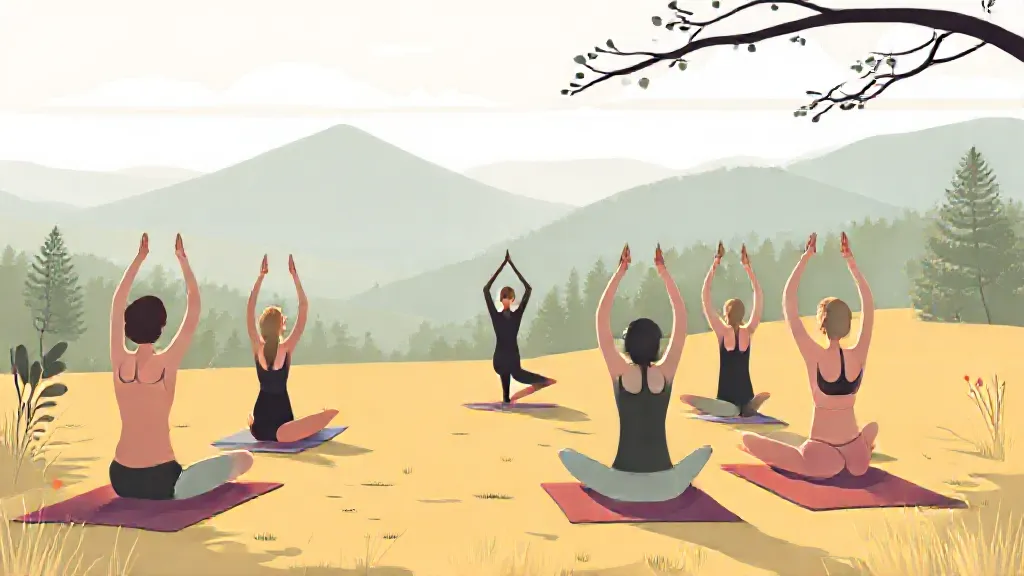In today's fast-paced world, anxiety and stress have become common experiences for many individuals. As mental health awareness grows, alternative therapies such as yoga are gaining recognition for their potential to alleviate these issues. Yoga, an ancient practice originating from India, combines physical postures, breathing techniques, and meditation to promote overall well-being.
This article delves into how yoga can effectively reduce anxiety and stress, backed by scientific research and practical applications.
The Science Behind Yoga and Stress Reduction
Numerous studies have shown that yoga can significantly reduce stress levels. According to a study published in the Journal of Clinical Psychology, participants who engaged in regular yoga practice reported lower levels of anxiety and stress compared to those who did not.
The practice of yoga activates the parasympathetic nervous system, which helps the body to relax and recover from stress. This physiological response is crucial in counteracting the fight-or-flight response triggered by anxiety.
Breath Control and Mindfulness
One of the fundamental aspects of yoga is pranayama, or breath control.
Controlled breathing techniques are integral to yoga practice and have been shown to reduce anxiety levels. By focusing on the breath, individuals can cultivate mindfulness, which helps to anchor their thoughts and emotions in the present moment. Mindfulness has been linked to lower levels of stress and anxiety, as it encourages individuals to observe their thoughts without judgment, reducing the tendency to ruminate on negative experiences.
Physical Postures and Their Impact on Mental Health
The physical postures of yoga, known as asanas, play a significant role in alleviating anxiety and stress. Engaging in these postures not only improves physical health but also promotes mental well-being. For example, poses like Child’s Pose and Legs-Up-the-Wall pose are known for their calming effects.
These postures help to release tension in the body, allowing for a deeper sense of relaxation. Furthermore, regular practice can enhance body awareness, leading to a more positive self-image and reduced anxiety.
Yoga as a Tool for Emotional Regulation
Yoga also equips individuals with tools for emotional regulation.
The practice encourages self-reflection and self-awareness, enabling practitioners to recognize their emotional triggers and responses. By developing this awareness, individuals can learn to respond to stressors more effectively rather than reacting impulsively. This emotional intelligence is crucial in managing anxiety, as it fosters resilience and adaptability in the face of challenges.
Community and Support in Yoga Practice
Participating in group yoga classes can provide a sense of community and support, further enhancing its stress-relieving benefits. The shared experience of practicing yoga with others can foster connections and reduce feelings of isolation, which are often associated with anxiety. Additionally, the encouragement from instructors and fellow practitioners can motivate individuals to maintain their practice, leading to long-term benefits for mental health.
Yoga and the Mind-Body Connection
The holistic nature of yoga emphasizes the mind-body connection, which is essential in managing anxiety and stress. By integrating physical movement, breath, and mindfulness, yoga creates a comprehensive approach to mental health. This connection allows individuals to tune into their bodies and emotions, facilitating a deeper understanding of their mental states.
As a result, practitioners can develop healthier coping mechanisms and strategies for dealing with stress.
Integrating Yoga into Daily Life
To reap the benefits of yoga for anxiety and stress reduction, it is essential to integrate it into daily life. Even short sessions of 10 to 15 minutes can be effective.
Individuals can incorporate yoga into their routines by practicing simple stretches, breathing exercises, or guided meditation. Apps and online classes make it accessible for anyone, regardless of experience level, to explore the therapeutic effects of yoga.
Conclusion: A Path to Mental Well-Being
In conclusion, yoga offers a multifaceted approach to reducing anxiety and stress.
Through its combination of physical movement, breath control, and mindfulness, yoga promotes relaxation, emotional regulation, and community support. As more individuals seek alternative methods for managing their mental health, yoga stands out as a valuable practice that can lead to lasting benefits. Embracing yoga as part of a holistic wellness routine can pave the way for a calmer, more balanced life.
